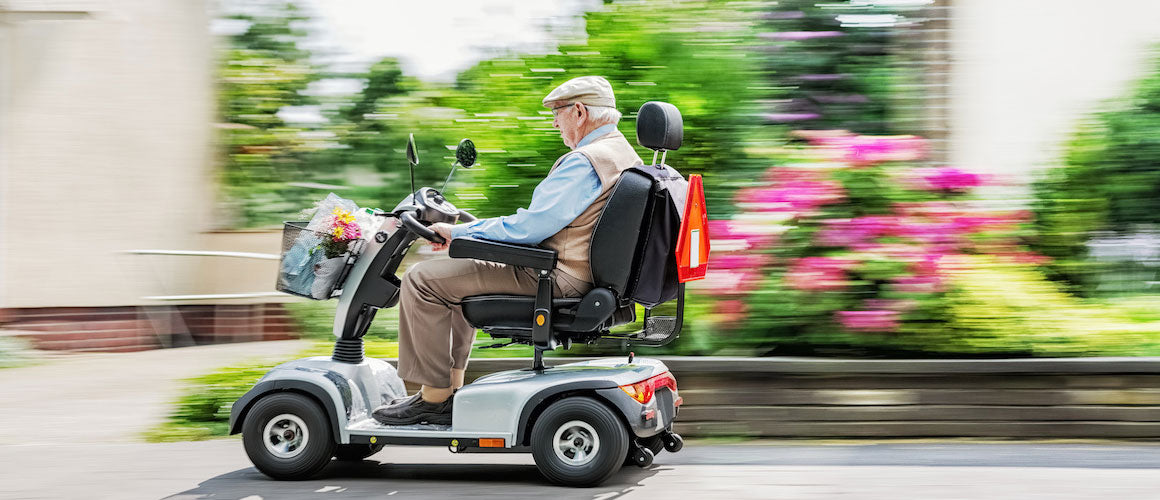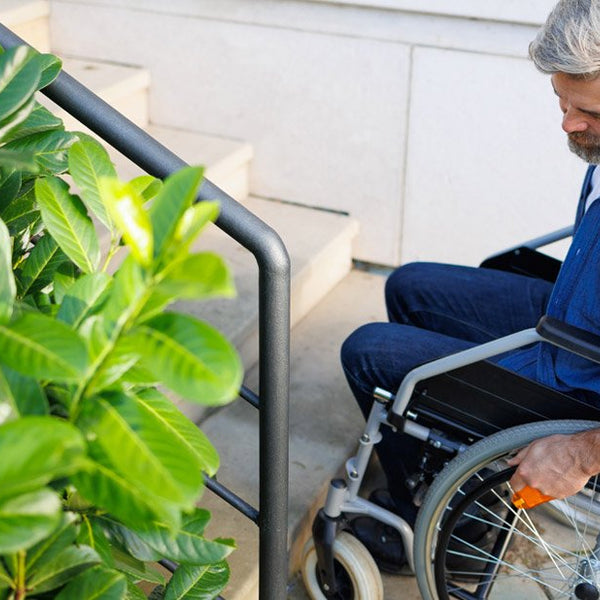Technology to help older people get more active and mobile
As lockdown measures continue to ease and life slowly starts to get back to normal, we asked Age Space to reflect on how technology has made a difference over the last year, and how families can continue to embrace technology to support their elderly parents and relatives.
12 months is a long time in the ever-expanding world of tech. The pandemic has accelerated digital advancements and positively forced the older generation to jump on board.
GP appointments became video GP appointments and dementia support groups turned into Zoom dementia support groups. Grandparents embraced Skype and WhatsApp to chat to their grandchildren. It's been a tough year for older people, but tech has certainly helped us all to feel a little bit more connected.
However, we must not underestimate the impact the last year has had on older people. Forced isolation will have left many feeling less confident both physically and mentally.
Ben Steel, Age Space
Whilst the rest of the world is rushing out to get haircuts, meeting up with friends for an alfresco lunch and a whizz around the shops – we need to stop and think about how we support older relatives who are feeling vulnerable about this re-emergence.
Just as technology kept families connected when they were stuck indoors, it can also keep families connected when their older relatives start getting out and about again.
With this in mind, here are Age Space’s top 3 useful gadgets and gizmos to help older people and their families feel more confident and connected outdoors.
1. Mobile phones for the elderly
Don’t worry, we’re not suggesting that you get Granny the latest Apple iPhone Nimbus 2000!
However, in a world where everything seems to be moving online, a mobile phone can make life easier for older people and their families.
Sadly, mainstream phone manufacturers are still slow to develop more accessible phones (a discussion for another day). But we’ve found a couple of smaller manufacturers making mobile phones that are easier to use by older people – using bigger buttons, more simple designs, and limiting the features to only the most useful.
Depending on your parent's needs, the most basic big button phone we recommend would be the Artfone C1 or the Alcatel 20.03. For the more tech savvy, we recommend a senior-friendly smart phone or a clever personal alarm watch for the elderly. Other older adults may prefer a personal alarm rather than relying on a mobile phone.
Don't forget to shop around
We also recommend shopping around first before deciding. Don’t be talked into getting a mobile phone that is more than your relative needs for a price that is well above what it should be.
Compare mobile plans before buying
Make sure you weigh up data/call/text contracts vs SIM-only deals and buying the phone outright, as the latter is often much cheaper.
SOS alarms
Another option that is even simpler to use than a mobile phone is an SOS alarm such as Taking Care's GPS Alarm.
2. GPS devices and alarms
One of the unsung heroes of the pandemic, personal alarms have quietly been helping thousands of families stay reassured that their older relatives are safe.
In their most simple form, a personal alarm is a button, typically worn around the next or wrist, that when pressed in an emergency sends an alarm to a 24/7 monitoring team. They will then assess the situation and work out the next course of action, such as calling the emergency services or alerting family members or neighbours.
But did you know you can now get personal alarms that work outside the home?
They use the SIM mobile network to connect the wearer to monitoring team and enable two-way communication through the pendant itself. Many now come with GPS technology so the monitoring team can pinpoint the wearer’s exact location.

They are perfect for those who like getting out and about but might not be as steady on their feet as they used to be, or specialist dementia alarms for those living with dementia who have a tendency to wander. Many even come with built-in fall detection, that connect wearer and monitoring team if the pendant senses a fall, without a button needing to be pressed.
GPS personal alarms look good too; personal alarms are no longer just for the elderly. Stylish personal alarm watches function as a personal alarm and also allow you to make and receive phone calls and send voice messages.

3. Mobility devices
Assistive technology is increasingly common to help people living at home, with smart sensors taking advantage of newer internet technologies. However, a decline in mobility can impact an older person’s confidence, especially when it comes to leaving the house.
This loss of independence and enforced isolation can quickly spiral into worsening physical and mental health problems.
Mobility scooters
Mobility scooters can be a lifeline, enabling older people to get back out and about again safely. It can be tricky to convince an elderly relative that they need more assistance, but the long-term positives far outweigh the short-term negatives.
There are a range of mobility scooters on the market and a bit like choosing a car, this can become a fun activity. Plus, as a family you might help an elderly relative to personalise their scooter further.
A mobility scooter will likely set you back at least £500 and electric wheelchairs start around £300. However, before you invest, why not give one a try?
Most cities have Shopmobility schemes, normally based near a major shopping centre, that allow you to rent a mobility scooter for the day. You can also ask them for recommendations based on your elderly parent’s needs.


